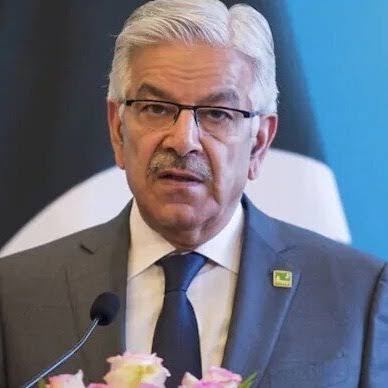New Delhi: In a decisive move amid escalating tensions with Pakistan, the Government of India on Tuesday blocked the X (formerly Twitter) account of Pakistani Defence Minister Khawaja Muhammad Asif, citing the spread of “disinformation and fake news” regarding Jammu and Kashmir in the aftermath of the deadly Pahalgam terror attack. The action marks a significant escalation in India’s digital crackdown on cross-border narratives following the massacre of 26 people, mostly tourists, in Baisaran Valley, Pahalgam, on April 22.
The blocking of Asif’s account comes just a day after India banned 16 Pakistani YouTube channels with a combined 63 million subscribers for disseminating “provocative and communally sensitive content”. Users in India attempting to access the minister’s X handle are now greeted with a message stating the account has been withheld in response to a legal demand.
The Pahalgam terror attack, the deadliest in India since the 2008 Mumbai attacks, has sent shockwaves across the nation. Five militants armed with assault rifles targeted tourists in the Baisaran Valley, separating victims by religion before opening fire. Of the 26 killed, 25 were tourists, predominantly Hindus, and one was a local Muslim who tried to intervene. The Resistance Front, an offshoot of the Pakistan-based Lashkar-e-Taiba, initially claimed responsibility but later retracted its statement.
The brutality of the attack has intensified demands within India for a strong response. Prime Minister Narendra Modi convened a high-level security meeting, and the government has since announced sweeping measures against Pakistan, including:
Suspension of all visa services for Pakistani nationals and revocation of existing visas
Closure of the only operational land border crossing at Attari
Downgrading of diplomatic ties, with both countries reducing High Commission staff
Expulsion of Pakistan’s defence, naval, and air advisors from New Delhi
Suspension of the Indus Waters Treaty, a historic water-sharing pact
In the days following the attack, Defence Minister Khawaja Asif made several provocative statements, including claims of an imminent Indian military strike and admissions in international interviews about Pakistan’s historical support for terrorist groups[8]. Asif told Reuters, “We have reinforced our forces because it is something which is imminent now. So, in that situation, some strategic decisions have to be taken, so those decisions have been taken”. In another interview, he acknowledged Pakistan’s involvement in “dirty work” for the West, describing it as a “mistake” for which the country has paid a heavy price.
India cited these remarks as part of the rationale for blocking Asif’s X handle, accusing him of fueling misinformation and escalating tensions. The Ministry of Electronics and Information Technology, acting under legal provisions, moved swiftly amidst what officials described as a “digital war” following the Pahalgam attack.
The digital blackout is part of a broader set of punitive actions by India, which also include diplomatic expulsions and the suspension of key agreements. The Supreme Court of India and top officials have condemned the Pahalgam attack, calling for global attention to Pakistan’s role in supporting cross-border terrorism.
Meanwhile, Pakistan has sought an “international probe” into the Pahalgam incident and denied any involvement, even as ceasefire violations have been reported along the Line of Control for several consecutive nights.
India’s blocking of the Pakistani Defence Minister’s X account underscores a new phase in the country’s strategy to counter what it sees as cross-border propaganda and digital misinformation. With diplomatic and military tensions at a recent high, observers warn that the fallout from the Pahalgam attack could mark a turning point in already fragile India-Pakistan relations.
As both nations brace for further developments, the digital and diplomatic standoff continues to draw international scrutiny, with calls for restraint and accountability growing louder.





